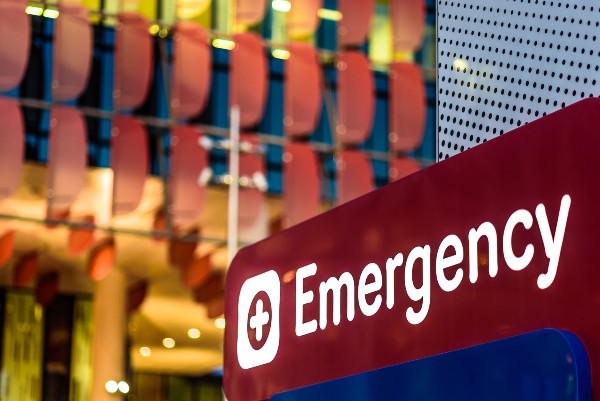-
In Australia, most public and some private hospitals have an emergency department (sometimes called the ED or AED) to provide 24-hour care to patients who need urgent medical attention. It’s important to understand that emergency departments are for people who need urgent medical care. Some reasons you might need to go to one include:
- injuries from accidents, physical assaults or falls
- a heart attack or stroke
- broken bones
- serious illnesses
- severe pain
- complications with pregnancy
- burns
- bleeding
- difficulty breathing
- drug or alcohol overdoses
- poisoning.
Remember, in an emergency you should call 000 for help.
If your situation is not an emergency, you can still get general medical treatment and health advice from a general practitioner (also known as a GP or local/family doctor), rather than visiting an emergency department.
Before you go and what to pack
Once you’ve identified that you do need urgent medical help from an emergency department, make sure you bring any essential items with you. These include:
- photo ID
- a debit or credit card
- your OSHC card
- your phone and charger
- any medications you take, or a list of medications
- any relevant scans, x-rays or test results, if you have them
- your family doctor’s or general practitioner’s (GP) details
- an overnight bag with clothes and toiletries
- a book or magazine.
If you arrive by ambulance, ask a friend to bring these items to the hospital for you.
When you get there
First, you’ll be seen and assessed by a triage nurse. That means you’ll be asked questions about your symptoms and why you’ve come to the emergency department. Let the nurse know if you need an interpreter to help you during your visit.
Based on your answers, you’ll be assigned a category for receiving treatment. This will be guided by how urgently you need help, not by when you arrive. If an emergency department is busy, you may be waiting a long time to receive care.
Next, an administrative staff member will speak to you to get your name, address and proof of your identity, as well as your OSHC details. This will help make sure you receive the treatment you need in the event you need to be admitted to hospital.
What happens next?
You’ll be reviewed by a doctor or another highly trained health specialist, such as a nurse practitioner or a social worker. Your wait time to be seen by one will vary depending on how busy the emergency department is and how urgently your need care.
Non-urgent patients in emergency departments usually wait up to two hours to be reviewed by medical staff, so think about if your situation can be managed by a GP or pharmacist outside of hospital. Remember, if the emergency department is busy, you may be waiting a long time.
Depending on your health needs, the emergency staff may recommend certain tests, such as blood tests or x-rays. They might also decide to discharge you with:
- medication
- referrals to your GP or a specialist doctor
- minor treatment before going home (such as stitches, a wound dressing or a plaster cast)
- a request to return to hospital for surgery.
In some situations, you might need to be admitted to hospital for further treatment or tests, or you might be transferred to a hospital that can better support your health needs.
Costs and fees
Visiting an emergency department in Australia may be a very different experience compared to your home country, and it may incur an out-of-pocket fee.
When you first arrive, the emergency department will typically let you know the fee for your care and then bill you after your treatment or when you’re discharged. Emergency department services can be claimable back through your OSHC provider. Fees vary depending on the type of treatment you receive and your length of stay, even if you’re not admitted to hospital overnight.
If it’s not an emergency
If you decide you don’t need urgent medical attention, there are still many support options available to you, so you don’t need to go to hospital for health and wellbeing support.
Still not sure?
If you’re a Medibank OSHC member and you need help understanding where to go for different health support options, contact the 27/7 Student Health and Support line on 1800 887 283.
What to expect from a visit to the emergency department


24/7 Student Health and Support Line
Need support? Medibank Overseas Student Health Cover members can call anytime for health advice from a registered nurse, counselling services, emergency legal advice, travel document assistance, interpreter service and more.